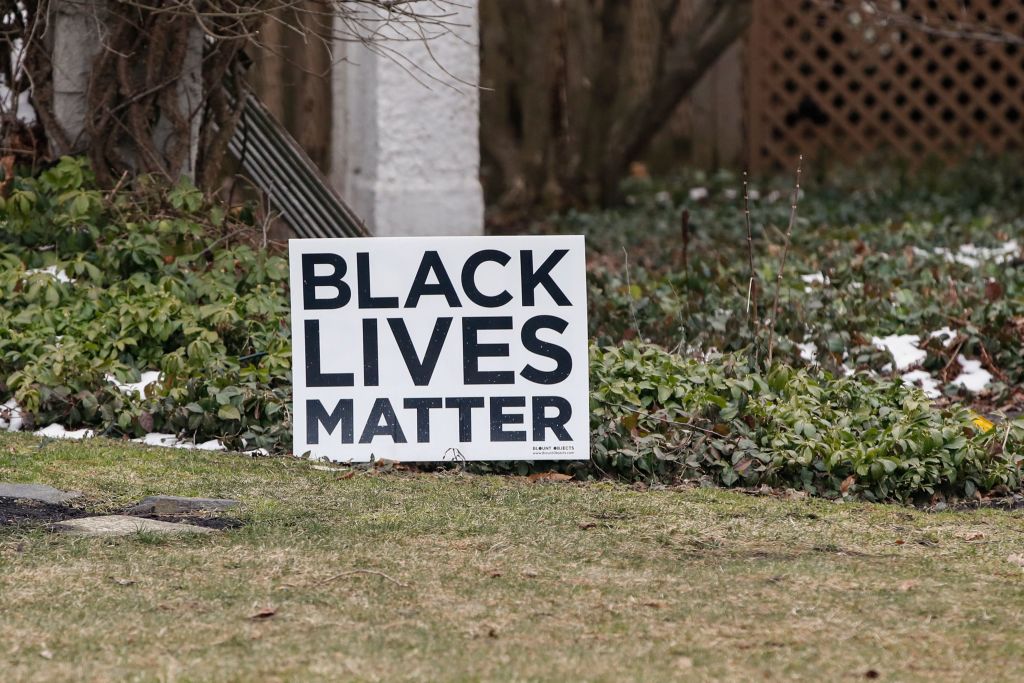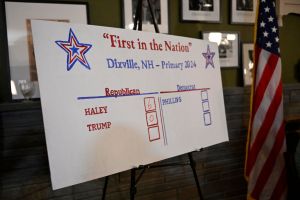Several weeks back, I went for a run in the Del Ray neighborhood of Alexandria in Northern Virginia. It’s the sort of place where ‘Black Lives Matter’ signs cry out of security-alarmed windows and the dollar-to-fried-pickle exchange rate is instantly available upon request. I was hoofing it along when suddenly a guy leaned out of nowhere and shouted, ‘Why don’t you wear a mask if you’re going to jog on the sidewalk?!’
I told him to screw off and ran on, but my first reaction was one of pity. In Northern Virginia, the danger of getting mown down by a waif on a Lime scooter is real and ever-present; maybe he was just on edge. It was only later that I realized he may as well have just wished me dead — people have asphyxiated from wearing masks while exercising. And it was only after that that I realized something else: I had seen that man before.
I flashed back to four months earlier when I’d been visiting family in Charlotte, North Carolina. A guy had tapped me on the back and demanded that I pull up my mask, which had slipped beneath my nose. That we were in church, mass was about to start, he was two pews back and he’d broken every rule of social distancing in order to ward off the mortal threat of distant nasal exhalation not in his direction had not deterred him. There he was, short, thin, silver-haired, polo shirt, the grim eyes of one perennially disappointed by America’s gun ownership rate.
Just like the guy I’d seen in Del Ray.
I don’t want to assume too much from these encounters. It’s certainly possible that they’re unique to me, that I’ve been assigned the ghost of some former Sierra Club local chapter president who will continue to haunt me long after COVID has passed. But I can’t help but think there’s a more universal lesson here. Much has been made over the last year about Karens, white, upper-middle-class women whom the coronavirus has driven to hysteria. Yet all of the plague paranoiacs I’ve encountered have been men — and men of a certain type.
So why has the national conversation been so focused on the ladies? Is that a whiff of sexism I detect? Certainly the Karen label gets at something real — if you doubt me, head on down to your local daycare center without a gas mask on and see what happens. But by calling out Karens, we seem to have underrepresented all the male COVID neurotics out there. And underrepresentation is something we cannot tolerate. It’s time to accept that Karen has a male counterpart — and his name is Joel.
Joel isn’t just real; he’s often in a position of great power. Many of America’s most prominent COVID worriers are men: Joe Biden, Anthony Fauci, Bill de Blasio, Chris Cuomo (except when he’s yukking it up with his own friends, of course). And while the governor who’s overreached the furthest with coronavirus restrictions is probably Gretchen Whitmer, the runners-up — Andrew Cuomo, Gavin Newsom, Ned Lamont, Jay Inslee, Phil Murphy — are all men.
Admittedly there’s something like a battle of the sexes being fought here. Research shows that women are more inclined to fret about the coronavirus than men are. A Dartmouth College study from last October found that ‘men are less likely to favor precautions for COVID across the board’. Per Dartmouth, 40 percent of men thought it was time to start getting their lives back to normal rather than staying at home, compared to 28 percent of women. (Interestingly, these differences held up regardless of partisanship. Republican women were more worried than Republican men.)
But there’s also a difference between exercising good-faith precautions — wearing masks, working from home when possible — and getting in another’s face because he didn’t don a balaclava before heading out for a hike in the middle of the woods. And it’s on the other side of this line that we find our Karens and Joels. There’s no data available as to which sex is more likely to be confrontational over COVID restrictions. But given the anecdotal evidence — and given that men have a, shall we say, historical proclivity towards the use of force — I think we can at least conclude that Joels are a real phenomenon in need of sociological study.
Until then, the best we can do is to stereotype them. Your average Joel is around 50 and lives in a well-to-do suburb. He’s forever bragging about how his wife works, yet he pulls in most of the family income as head of that graphic design firm he started back in the 2000s. He has a ‘Biden/Harris’ bumper sticker on his car; he lodges constant noise complaints against the construction workers building the median-income housing development up the street. He’s vice president of his local HOA and once every couple of weeks cruises around the neighborhood in search of unlawfully decorated mailboxes. He’s still pissed about that Game of Thrones finale and does, in fact, have half an hour to explain to you why.
What sets Joel apart isn’t his left-wing politics or even his concern for the safety of others. It’s his hunger for a set of rules and conventions that provide him with both validation and a sense of superiority over others. History is full of just such men. Now, in a modern society that cherishes equality, we’re forced to admit: men can be just as totalitarian, petty, shrewish, haranguing and busybodied as women.


















